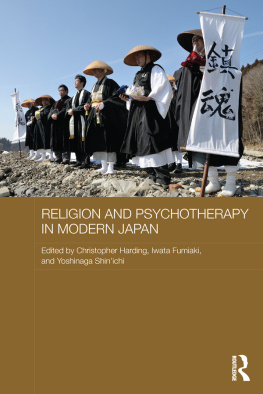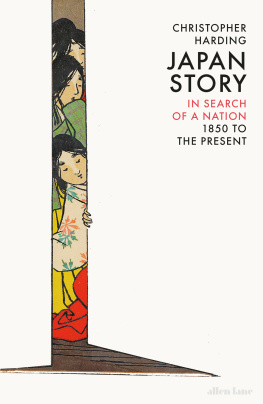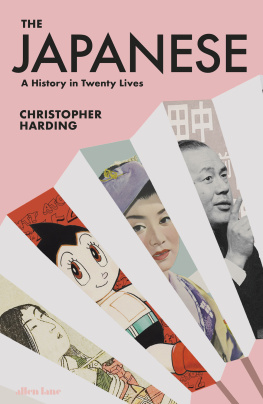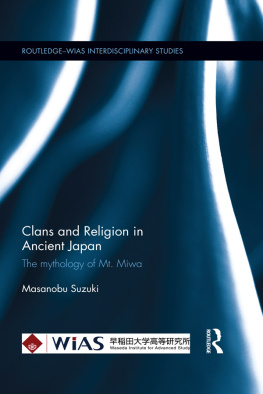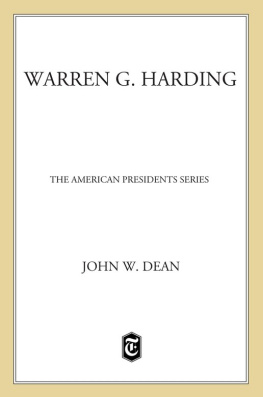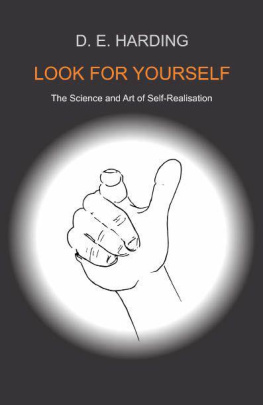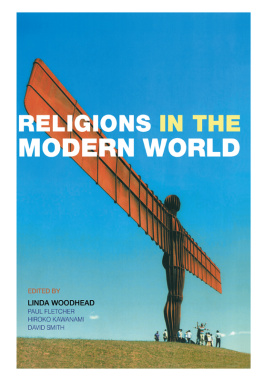This is an outstanding book the first high-quality academic work on religion and the psy disciplines in modern Japan. It covers the topics of modern religion and psychotherapy in Japan and connects them with the recent major crises of Aum Shinrikyo and the earthquake and tsunami of March 2011.
Akihito Suzuki, Professor of History at Keio University, Japan
Chris Harding and his fellow editors have brought together a significant set of essays examining the relationship between the psy disciplines of psychiatry, psychology, and psychotherapy, and religion in Japan. Hardings overview takes us beyond the problematic definitional issues relating to religion to show how the psy disciplines have helped shape the ways in which religion is manifested in modern Japan. The essays that follow introduce a wealth of Japanese scholarship in the field that will be of value to all who are interested in religion, psychotherapy, and Japanese culture in general.
Ian Reader, Professor of Religious Studies at Lancaster University, UK
A novel take on the role of religion in Japan, and another significant contribution to understanding religion in modern Japanese society. Instead of the usual image of Buddhist meditation as zazen, we find fascinating studies of various kinds of mental and psychological care, from naikan meditation to Morita therapy. These chapters show how modern psychotherapy and traditional religion are both utilized (though not always harmoniously) for dealing with spiritual issues. This collection presents work by many of the best religious studies scholars in Japan today.
Paul L. Swanson, Editor, Japanese Journal of Religious Studies
Religion and Psychotherapy in
Modern Japan
Since the late nineteenth century, religious ideas and practices in Japan have become increasingly intertwined with those associated with mental health and healing. This relationship developed against the backdrop of a far broader, and deeply consequential meeting: between Japans long-standing, Chinese-influenced intellectual and institutional forms, and the politics, science, philosophy, and religion of the post-Enlightenment West. In striving to craft a modern society and culture that could exist on terms with rather than be subsumed by western power and influence, Japan became home to a religionpsy dialogue informed by pressing political priorities and rapidly shifting cultural concerns.
This book provides a historically contextualized introduction to the dialogue between religion and psychotherapy in modern Japan. In doing so, it draws out connections between developments in medicine, government policy, Japanese religion and spirituality, social and cultural criticism, regional dynamics, and gender relations. The chapters all focus on the meeting and intermingling of religious with psychotherapeutic ideas and draw on a wide range of case studies including: how temple and shrine cures of early modern Japan fared in the light of German neuropsychiatry; how Japanese Buddhist theories of mind, body, and self-cultivation negotiated with the findings of western medicine; how Buddhists, Christians, and other organizations and groups drew and redrew the lines between religious praxis and psychological healing; how major European therapies such as Freuds fed into self-consciously Japanese analyses of and treatments for the ills of the age; and how distress, suffering, and individuality came to be reinterpreted across the twentieth and early twenty-first centuries, from the southern islands of Okinawa to the devastated northern neighbourhoods of the Tohoku region after the earthquake, tsunami, and nuclear disasters of March 2011.
Religion and Psychotherapy in Modern Japan will be welcomed by students and scholars working across a broad range of subjects, including Japanese culture and society, religious studies, psychology and psychotherapy, mental health, and international history.
Christopher Harding is Lecturer in Asian History in the School of History, Classics and Archaeology, University of Edinburgh, UK.
Iwata Fumiaki is Professor in the Department of Social Science Education, Osaka Kyoiku University, Japan.
Yoshinaga Shinichi is Associate Professor at the Maizuru National College of Technology, Japan.
Routledge Contemporary Japan Series
| 1 | A Japanese Company in Crisis |
| Ideology, strategy, and narrative |
| Fiona Graham |
| 2 | Japans Foreign Aid |
| Old continuities and new directions |
| Edited by David Arase |
| 3 | Japanese Apologies for World War II |
| A rhetorical study |
| Jane W. Yamazaki |
| 4 | Linguistic Stereotyping and Minority Groups in Japan |
| Nanette Gottlieb |
| 5 | Shinkansen |
| From bullet train to symbol of modern Japan |
| Christopher P. Hood |
| 6 | Small Firms and Innovation Policy in Japan |
| Edited by Cornelia Storz |
| 7 | Cities, Autonomy and Decentralization in Japan |
| Edited by Carola Hein and Philippe Pelletier |
| 8 | The Changing Japanese Family |
| Edited by Marcus Rebick and Ayumi Takenaka |
| 9 | Adoption in Japan |
| Comparing policies for children in need |
| Peter Hayes and Toshie Habu |
| 10 | The Ethics of Aesthetics in Japanese Cinema and Literature |
| Polygraphic desire |
| Nina Cornyetz |
| 11 | Institutional and Technological Change in Japans Economy |
| Past and present |
| Edited by Janet Hunter and Cornelia Storz |
| 12 | Political Reform in Japan |
| Leadership looming large |
| Alisa Gaunder |
| 13 | Civil Society and the Internet in Japan |
| Isa Ducke |
| 14 | Japans Contested War Memories |
| The memory rifts in historical consciousness of World War II |
| Philip A. Seaton |
| 15 | Japanese Love Hotels |
| A cultural history |
| Sarah Chaplin |
| 16 | Population Decline and Ageing in Japan |
| The social consequences |
| Florian Coulmas |
| 17 | Zainichi Korean Identity and Ethnicity |
| David Chapman |
| 18 | A Japanese Joint Venture in the Pacific |
| Foreign bodies in tinned tuna |
| Kate Barclay |
| 19 | JapaneseRussian Relations, 19072007 |
| Joseph P. Ferguson |
| 20 | War Memory, Nationalism and Education in Post-War Japan, 19452007 |
| The Japanese history textbook controversy and Ienaga Saburos court challenges |
| Yoshiko Nozaki |
| 21 | A New Japan for the Twenty-First Century |
| An inside overview of current fundamental changes and problems |
| Edited by Rien T. Segers |
| 22 | A Life Adrift |
| Soeda Azembo, popular song and modern mass culture in Japan |
| Translated by Michael Lewis |
| 23 | The Novels of Oe Kenzaburo |
| Yasuko Claremont |
| 24 | Perversion in Modern Japan |
| Psychoanalysis, literature, culture |
| Edited by Nina Cornyetz and J. Keith Vincent |
Next page
